Winning in global markets today requires more than presence. It demands sharper strategy, faster execution, and genuine customer connection.
As international expansion becomes more complex, companies are rethinking what drives success. The evidence is clear: the most competitive organizations combine data, technology, and cultural relevance to deliver experiences that resonate worldwide.
These 10 statistics from our Global Expansion Business Case Guide highlight how forward-thinking businesses are building advantage across markets, and the operational choices that make the difference.
1. 79% of business leaders consider market adaptation a strategic priority
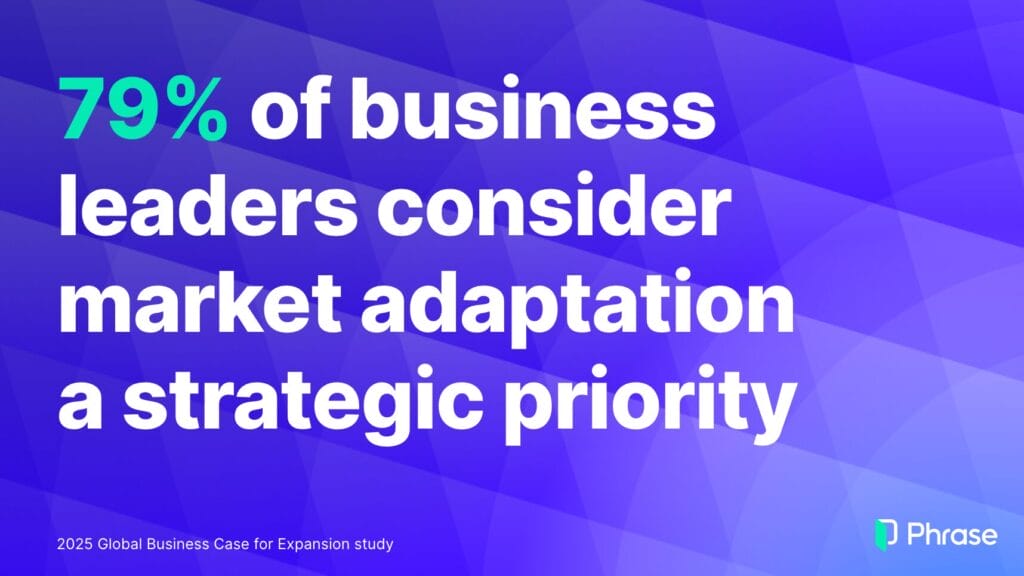
Nearly 80% of business leaders say adapting to local markets will become even more important over the next three years. Organizations that align products, pricing, and messaging with regional needs outperform those that rely on one-size-fits-all strategies.
2. 72.4% of consumers prefer information in their own language
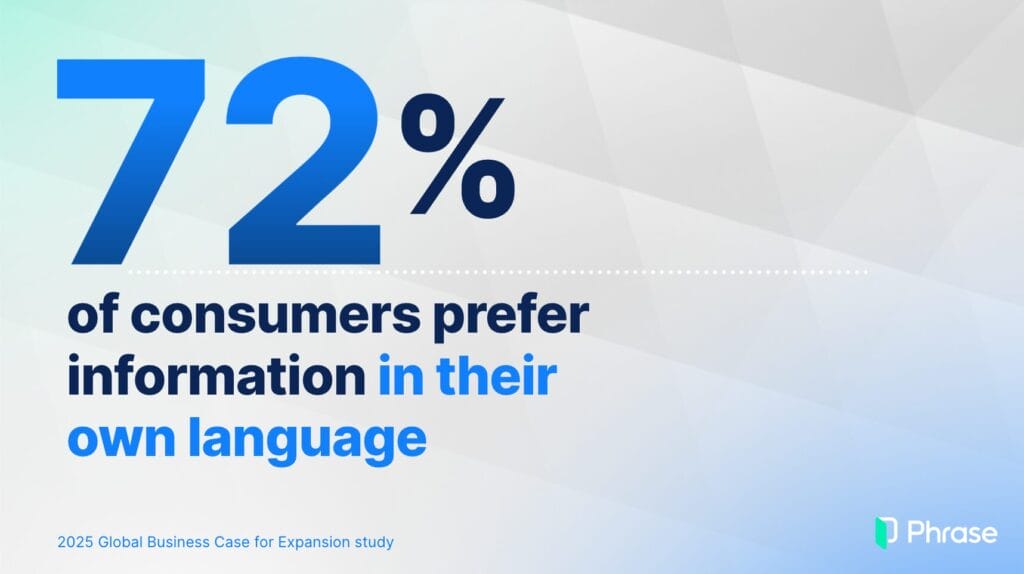
According to CSA Research, almost three-quarters of consumers are more likely to buy when information is provided in their language. Clear, culturally tuned communication improves engagement and drives conversions across every touchpoint, from product descriptions to pricing transparency.
3. 89% of consumers won’t buy from brands without local language support
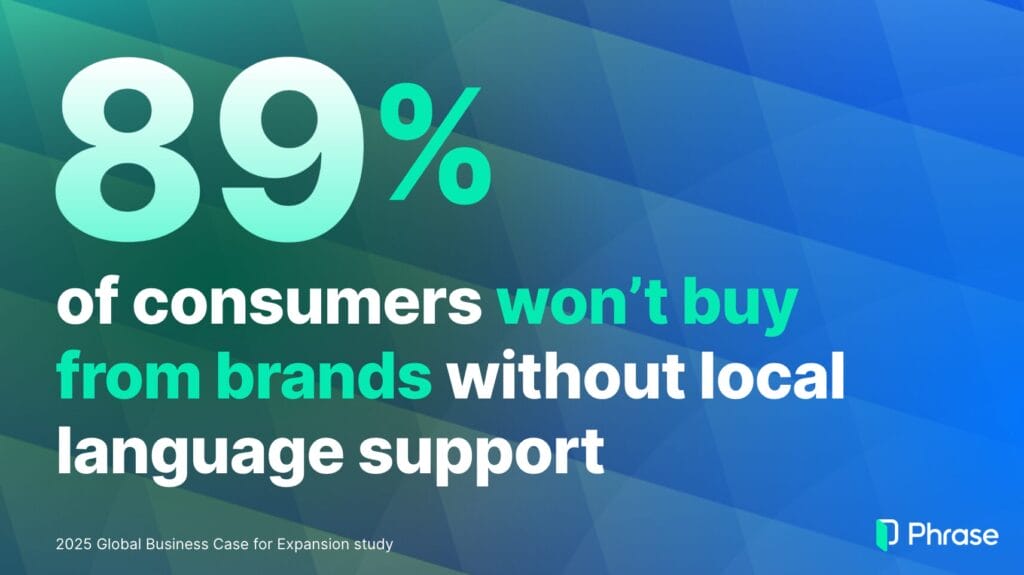
The need for translated content goes beyond making a purchase – customers want support options in their own language. This includes on-site support such as self-service FAQs, email or live chat, as well as customer service by phone.
Advances in real-time translation technology mean that now organizations can offer multilingual customer support without maintaining separate language-specific teams. This approach not only reduces operational costs but also enhances the customer experience by providing timely and accurate assistance in the customer’s preferred language..
4. 57% of leaders struggle to maintain brand consistency globally
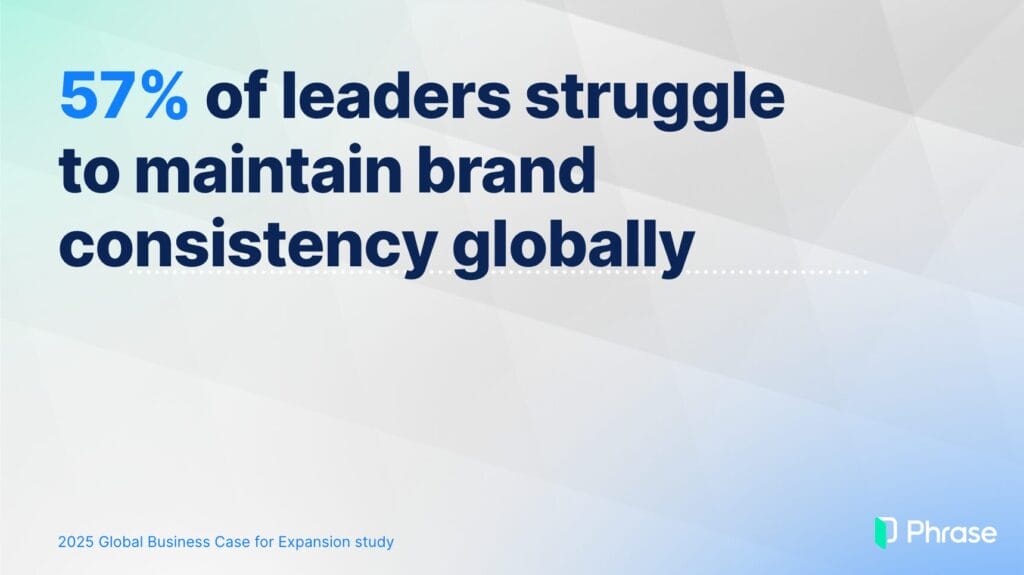
Brand consistency helps to establish credibility and trust among potential consumers. In the context of international expansion, it helps to foster a sense of reliability and familiarity.
The challenges faced by businesses in these areas underline the importance of an effective language technology platform, which can help to ensure consistency in several ways, including real-time oversight of projects and languages, and the use of glossaries, style guides and brand guidelines to ensure the consistent use of key brand terminology.
5. 87% of global business leaders say localization investment accelerated market expansion
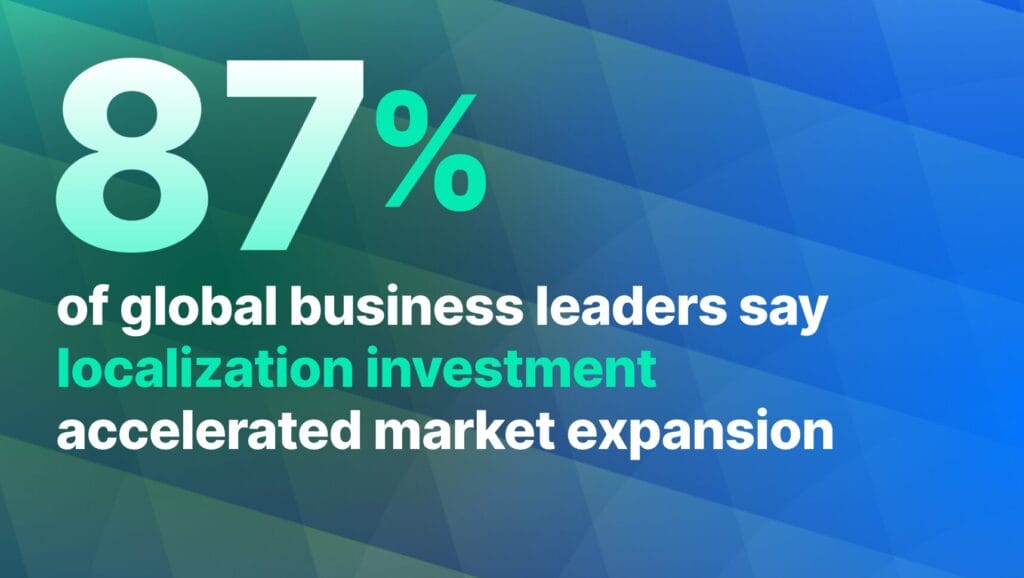
Executives report measurable returns from making content that is more relevant and useful to your customers, leading to increased revenue, faster time to market, increased brand awareness and higher customer satisfaction ratings.
In the US, that figure rises to 98%, confirming localization as a proven driver of growth.
6. 55% of companies have lost business due to poor market adaptation
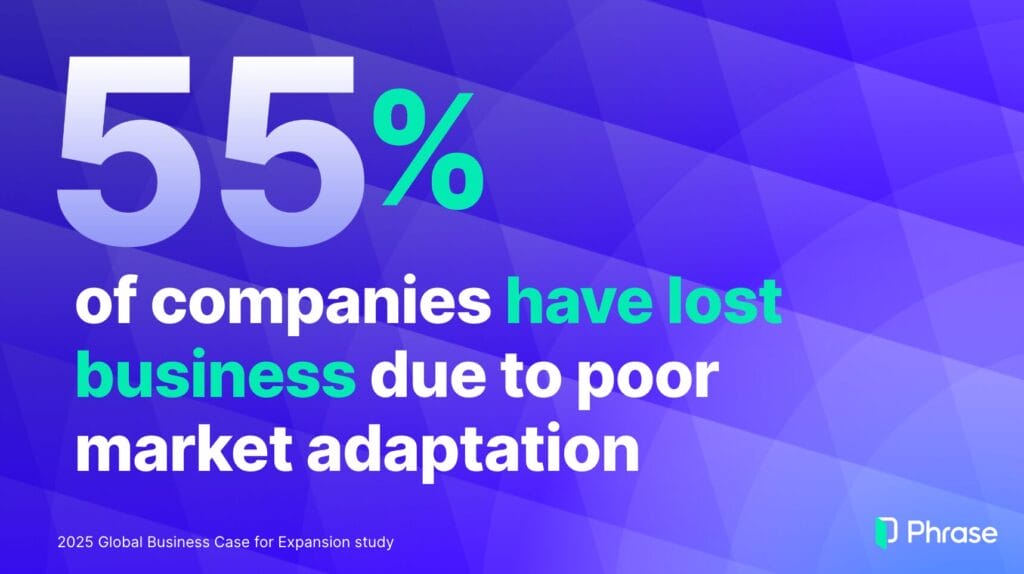
Poor communication costs revenue. When customers can’t easily understand or interact with a brand, trust erodes. Companies that treat localized content as a performance enabler see higher satisfaction and conversion rates.
7. Facebook ads with localized copy achieve up to 87% higher click-through rates
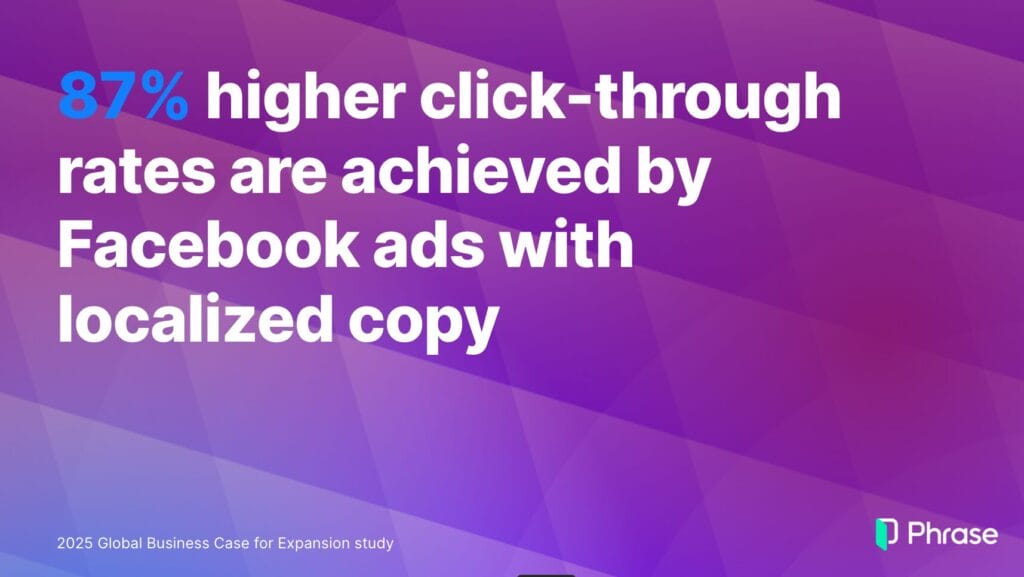
A study by Facebook showed that ads tailored to local audiences achieved 22% higher click-through rates (CTR) for women and an impressive 87% higher CTR for men.
This highlights the effectiveness of culturally relevant marketing in capturing audience attention and driving engagement.
8. 90% of businesses plan to enter new markets within five years

The race for global growth is intensifying. To stand out, companies need speed, efficiency, and operational systems that scale. Language technology plays a vital role in helping teams launch faster and compete effectively in diverse markets.
9. 73% of business leaders are optimistic about AI’s potential to power expansion

AI-driven automation is reshaping how companies launch, adapt, and manage global content. Yet 57% of organizations have not started to apply these tools to their international strategies
Through sophisticated AI-powered language technology platforms, multilingual content becomes a growth driver, one which can speed up time to market and enable faster global expansion.
10. 76% of leaders say speed to market is key to expansion success
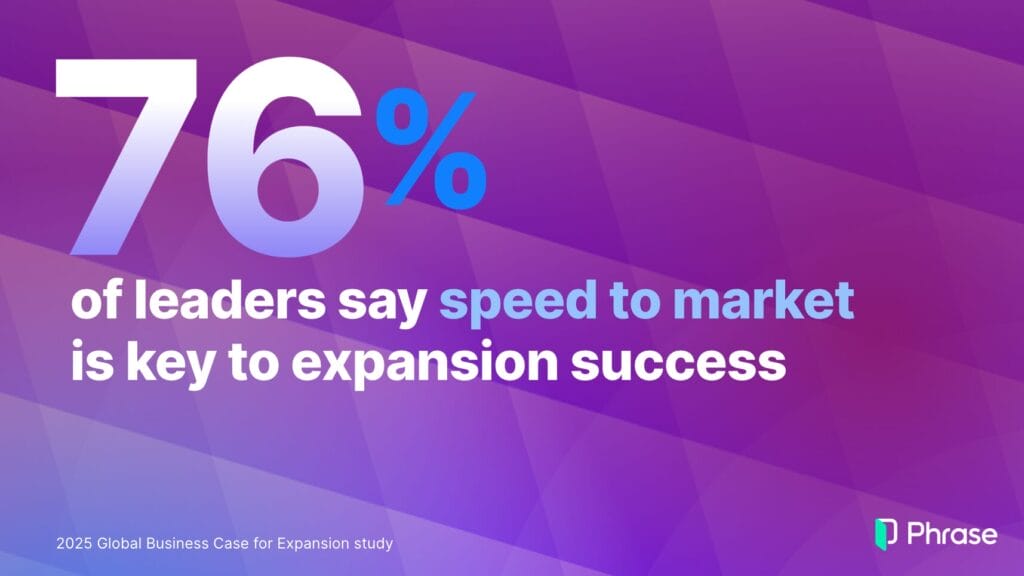
In competitive categories, timing can define market leadership. AI-driven workflows that automate translation and content adaptation enable brands to move faster while maintaining accuracy and consistency. From customer reviews and product documentation to marketing content, machine translation accelerates delivery without sacrificing quality. When paired with AI-based quality evaluation, it ensures clarity, accuracy, and brand alignment across markets.
The bigger picture
that combine automation, data, and human expertise are not only reaching new customers faster but also building lasting trust across regions. Quality and speed now go hand in hand: machine translation and AI-powered evaluation tools enable brands to manage growing volumes of content without losing control of tone, accuracy, or message.
As the global economy becomes increasingly connected, the ability to adapt content for multiple audiences at scale has become a core business advantage. Organizations that invest in smart, scalable systems gain the flexibility to move quickly, respond to market shifts, and deliver meaningful experiences to customers everywhere.
As pressure builds to grow internationally, the companies that blend cultural insight with automation and data-led strategy are best placed to win.






